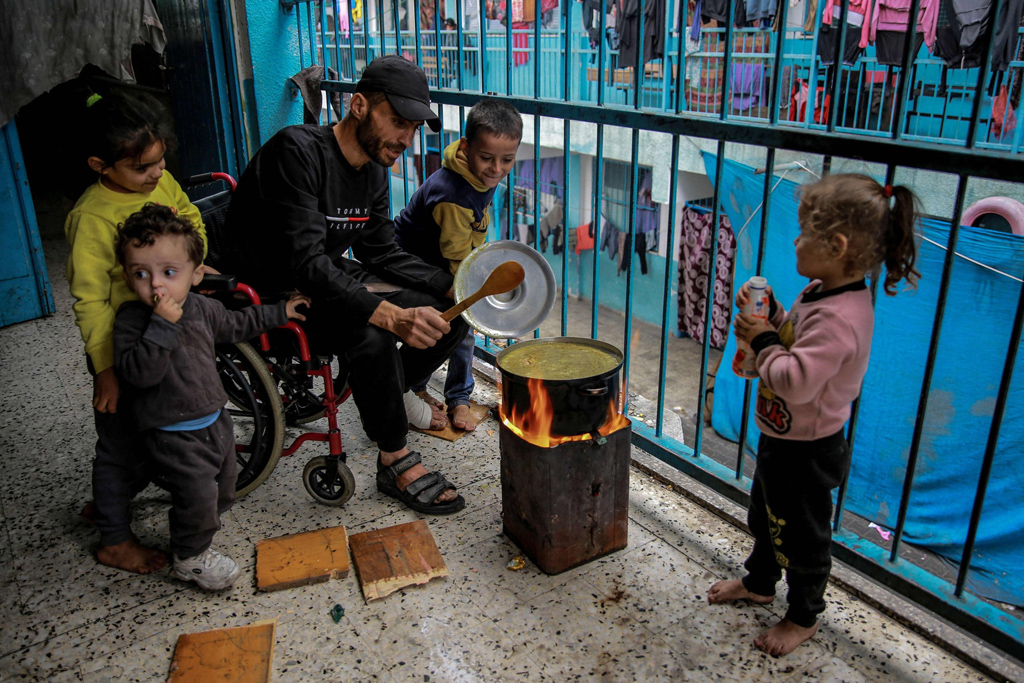The mass killings carried out by Israel in response to the large-scale Hamas attack on Oct. 7 have caused a great reaction, both in the region and around the world. As Israeli attacks continued to commit all kinds of war crimes, even some of the Western states that
have been giving unconditional support to Israel began to call on Israel to stop its atrocities.
Mainly due to the effect of Israel’s heavy losses and Qatar’s long-term mediation activities, together with the intervention of the United States, bore fruit, and an agreement was reached between Israel and Hamas to stop the violence. An agreement was reached last Tuesday. The parties announced the agreement on Wednesday and started implementing it on Friday.
Under the mediation of the Emirate of Qatar, Israel and Hamas have reached an important agreement to carry out a “prisoner exchange” and a four-day “cease-fire.” According to the information conveyed to media organizations by the Israeli officials and confirmed by the Hamas officials, in exchange for Hamas releasing 50 Israeli women and children from the 240-person Israeli group it holds, Israel will release 150 Palestinian women and children held in prisons by the occupation forces without any justification.
Israel promised that it would stop all its military activities in the entire Gaza Strip, would not attack or arrest anyone during the cease-fire, would provide freedom of movement along Salahuddin Street, where Palestinians fleeing the attacks take shelter and would allow humanitarian aid trucks to enter Gaza. In addition, it was decided that Israel would completely stop air traffic from the north of Gaza to the south for six hours daily. Additionally, Qatari officials announced that the International Red Cross Organization would go to Gaza and assist in the process of releasing the prisoners.
The Qatari officials, who have achieved great diplomatic success, announced that the agreement will enter into force on Friday. According to the agreement reached, Hamas has gradually begun to release its captives. Accordingly, Hamas started to release 12-13 captives daily; the first group was released on Friday afternoon.
The cease-fire can be extended for one more day in exchange for Hamas releasing every 10 Israeli prisoners. Therefore, it is possible to extend the duration of the cease-fire. Hamas has recently explained that it is ready to extend the cease-fire. However, Israel is reluctant to do so. Instead, Israel has explained that it favors extending the cease-fire on a daily basis. It seems that both sides are interested in extending the cease-fire.
What does the truce truly signify?
The cease-fire decision reached between Israel and Hamas can be described as a positive step. In general terms, one can see that four different sides and perspectives come to the fore. First of all, no matter what, it is important for the Palestinians in Gaza that Israeli attacks and brutality stop, even temporarily. During this period, delivering the humanitarian aid held through Egypt to Gaza will allow the situation of the Gazans to improve, albeit temporarily. Since people in Gaza are facing severe hunger, delivering trucks carrying food and other aid materials to those in need will prevent a larger humanitarian crisis. It is especially vital to delivering medical supplies and fuel to tens of thousands of people in Gaza, where
hospitals have been destroyed and the sick and injured cannot be treated.
It is also crucial that the heavy bombardment, which has been going on for seven weeks, will be stopped and that there will be an opportunity to improve the humanitarian situation, which has become increasingly intolerable. The daily entry of 200 aid and four fuel trucks into the region will significantly improve the humanitarian situation by meeting the food, fuel, energy and water needs of the Gazans, who largely depend on foreign aid.
Secondly, when we look at the Israeli side, we see that the expectations are very different. Although the cease-fire reached was described by some as a “humanitarian pause,” Israeli officials announced that they would continue their attacks in the same way. In this context, Israeli Prime Minister Benjamin Netanyahu announced that they would continue the attacks until they
reached their targets immediately after the cease-fire ended. Israeli state television KAN made a different statement and commented on the cease-fire. According to Israeli television, Israel has reached this agreement because it needed this break to enter the southern parts of Gaza.
On the other hand, international observers underlined that the worn-out Israeli army needed this break to recover. Therefore, many international observers agree that the main reason why Israel accepted the cease-fire was Israel’s relatively heavy losses. Considering that, in principle, there is no other way for Israel to come to the table, the last thesis seems correct.
Furthermore, on the Israeli side, the opportunity to improve the image of the Netanyahu Government will emerge. The Israeli people have been waiting and demanding the release of the Israelis who have been held by Hamas since the beginning of the events. It is expected that the release of the Israeli hostages will reduce criticism of the Israeli government and lead Israel to launch military attacks more easily.
Third, the temporary cease-fire may also reduce criticism of the Western states that provide
unconditional support to Israel. As the Israeli attacks continue, the world’s public opinion rightly criticizes the forces behind Israel, that is, the West. For this reason, Western states also want Israel to stop the attacks by making direct or indirect interventions. Western states, which cannot speak out against Israel’s massacres, expect the attack period to be kept short, as being called Israel’s accomplices increasingly harms their national interests. At the end of the day, they will defend the cease-fire in order not to fail to present themselves as “peacemaking actors.”
Fourthly, many Western and non-Western states such as
Türkiye, China, Russia, Australia, Colombia and the Gulf countries are calling for a permanent cease-fire to end the humanitarian tragedy in Palestine. Officials of international organizations such as the United Nations and the Gulf Cooperation Council (GCC) also announced that the steps taken were positive but insufficient. The majority of actors in this group call for an end to the conflict and violence, taking into account that what has happened so far violates the basic principles of international law. They even want and expect some concrete steps to be taken toward the solution of the Israel-Palestine conflict, using the latest developments as an opportunity, if possible.
[Daily Sabah, November 29, 2023]







